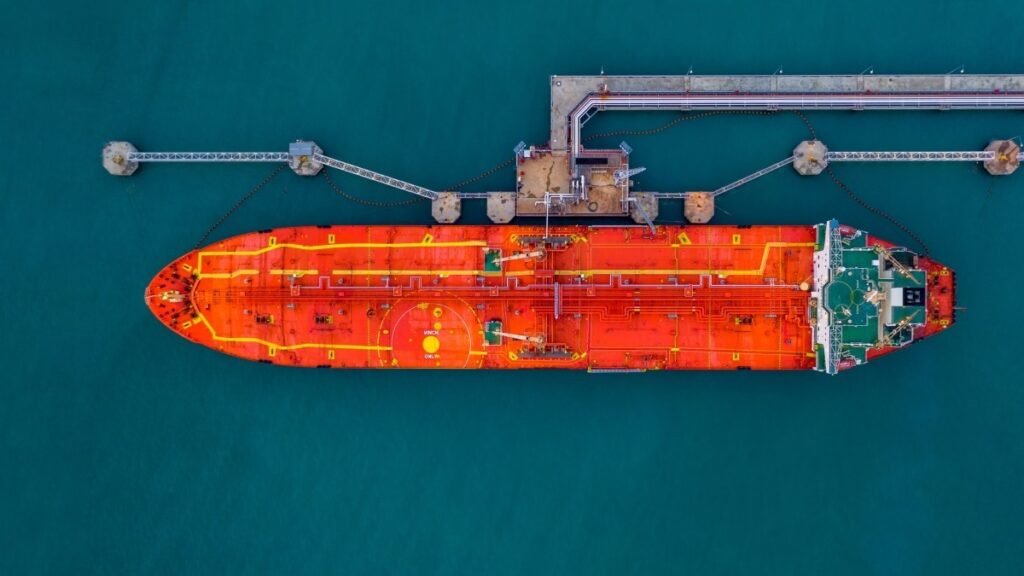The world of maritime transport is fundamental to the global economy, as it facilitates the movement of goods across continents. A critical aspect of this shipping world is the Worldscale system, a pricing mechanism widely used in the oil and tanker shipping industry. This article delves into what Worldscale is, its significance, and how it influences shipping rates and the global supply chain.
What is Worldscale?
Worldscale is a standard used to calculate the freight rates for shipping crude oil, petroleum products, and other liquids. It provides a reference point for the cost of transporting goods across a variety of tanker routes, from one port to another. Rather than setting fixed prices, Worldscale uses a base rate system that can be adjusted based on factors such as the condition of the market, demand, and other shipping costs.
The system is designed to ensure that the pricing for the transportation of oil and petroleum products remains transparent, fair, and consistent across the global shipping industry. It is used to determine the freight rates for voyages based on an agreed-upon rate per ton, where the Worldscale number represents the price as a percentage of a base rate.

History of Worldscale
Worldscale was introduced in the early 1950s by a group of shipowners, operators, and oil companies who wanted to standardize the process of freight rate determination in the oil industry. Prior to Worldscale, shipping companies used varying methods to calculate shipping rates, which led to confusion and disputes among stakeholders. The creation of Worldscale aimed to provide a transparent and universally accepted system that could be relied upon.
Initially, the Worldscale system was designed to account for crude oil transportation, but over the years, it has expanded to include other products such as refined petroleum and chemicals. The system has evolved in response to changes in the global market, with updated reference tables being issued regularly to reflect shifts in market conditions.
How Does Worldscale Work?
At the heart of the Worldscale system is the concept of the “Worldscale flat rate,” which serves as a benchmark for the price of shipping. The base rate is updated annually by Worldscale Association, based on various factors including the cost of fuel, maintenance, port fees, and overall market conditions.
A key feature of the Worldscale system is that it uses a percentage model. The “Worldscale number” for a specific route reflects the percentage of the base rate that will be applied. For example:
- If the Worldscale number for a route is 100, it means that the freight rate will be 100% of the base rate.
- If the Worldscale number for a route is 120, the rate will be 120% of the base rate, indicating a more expensive voyage due to various factors like increased demand or higher fuel costs.
This flexibility in adjusting the rates allows the system to reflect changes in the market and ensures that both shipowners and charterers (those hiring the ships) can agree on fair and equitable rates.
Why is Worldscale Important?
Worldscale plays a vital role in the oil and tanker shipping industry for several reasons:
- Transparency and Consistency: One of the main benefits of Worldscale is that it offers a transparent and consistent pricing structure across the global shipping network. By using a universally recognized standard, it eliminates confusion and disputes over freight rates.
- Market Reflection: The rates are dynamic and can be adjusted based on market conditions, such as the demand for oil, fluctuations in fuel prices, or changes in supply and demand dynamics in specific regions. This ensures that shipping rates reflect the current state of the market.
- Fairness for All Parties: The system is designed to be fair to both shipowners and charterers. Since Worldscale is based on a transparent, publicly available flat rate, both parties can have a clear understanding of the terms and avoid conflicts.
- Global Adoption: Worldscale is widely accepted by oil companies, shipowners, and shipping operators around the world. Its adoption has become so widespread that it is considered the standard for shipping rates for many companies and industries in the maritime sector.
- Rate Adjustments: Given that the oil and shipping industry is constantly evolving, Worldscale allows for regular updates and revisions to the base rate to ensure it accurately reflects the realities of the market. This flexibility is key to maintaining a stable shipping environment for the transportation of oil.
Impact of Worldscale on Global Trade
The significance of Worldscale extends far beyond the shipping industry. As one of the most critical systems for calculating the cost of transporting oil and petroleum products, Worldscale has a direct impact on global trade and the economy.
- Oil Price Influence: Since Worldscale is used to calculate freight rates for oil transportation, fluctuations in shipping costs can impact the price of oil and petroleum products globally. For example, a sudden increase in demand for oil transportation due to geopolitical instability can drive up Worldscale rates, which could result in higher oil prices in the market.
- Economic Stability: By providing a stable and transparent pricing mechanism, Worldscale contributes to economic stability in the oil sector. It ensures that shipping companies can effectively plan their operations and manage costs, leading to smoother trade flows and reducing the likelihood of major disruptions in global supply chains.
- Environmental Impact: Shipping costs can also reflect the environmental considerations of the shipping industry. For example, if regulations on emissions become stricter, shipping companies may face higher costs, which would likely be reflected in Worldscale rates. This provides an indirect incentive for shipping companies to adopt greener practices and technologies.
- Influence on Fuel Prices: Fuel costs play a major role in determining Worldscale rates. A spike in fuel prices may result in an increase in Worldscale rates, which could trickle down into higher costs for consumers. As such, fluctuations in fuel prices can have widespread effects on the economy.
Worldscale in Practice: How it Affects Tanker Operators and Charterers
For tanker operators, understanding Worldscale is essential to running a profitable business. Since it provides a clear benchmark for rates, operators can effectively plan their shipping contracts and manage their expenses.
For charterers, using Worldscale ensures they are paying fair prices for shipping services. By using this globally recognized standard, charterers can avoid being overcharged and make more informed decisions when selecting shipping routes.
The system also allows both parties to negotiate terms based on current market conditions, which helps maintain equilibrium in the shipping industry.
Conclusion
Worldscale is a critical pricing mechanism that helps regulate the global oil shipping industry. By providing a transparent, flexible, and universally accepted rate system, it ensures fair pricing for the transportation of oil, petroleum products, and other liquids. Its impact extends far beyond the maritime sector, influencing global oil prices, economic stability, and environmental considerations. As the shipping industry continues to evolve, Worldscale will remain a cornerstone of international trade, providing an essential framework for the dynamic and ever-changing world of global shipping.
Dp follow Uae stories for more Updates
Best Burger in Dubai, UAE: A Guide to the Tastiest Burgers in the City













